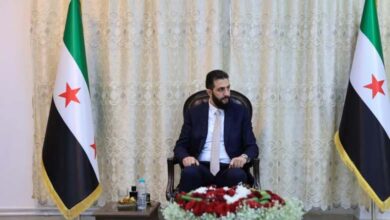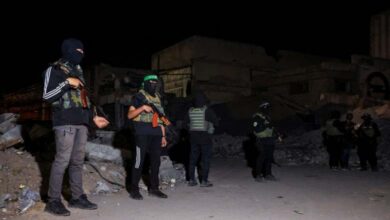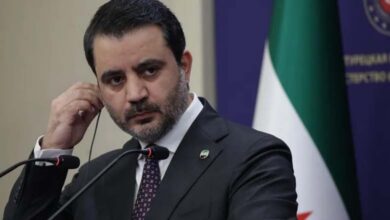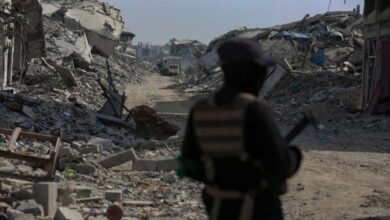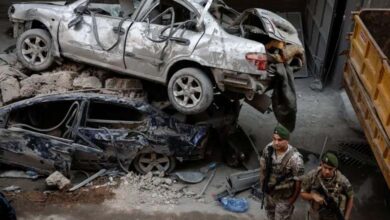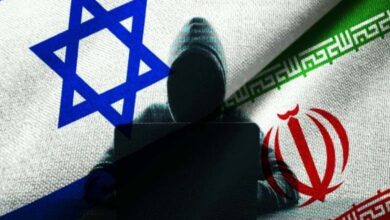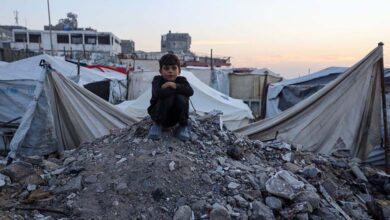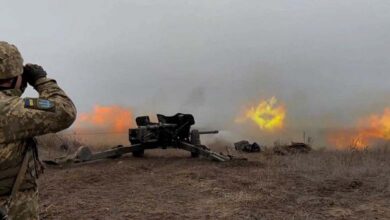Qatar Moves in All Directions: Mediator in Appearance, Interests Behind the Scenes
Doha is actively working to secure its position and interests in the region through coordination with Turkey while presenting itself as a presumed mediator in regional crises.

In an analysis for the Hebrew site “Ynet,” Lior Ben Ari highlighted Qatar and Turkey’s role in Syria, explaining how Doha is actively ensuring its regional interests through coordination with Ankara while portraying itself as a mediator in crises.
-
Tamim and Erdogan’s plans.. Qatar sends Syria’s terrorists to spread extremism in Ukraine
-
Qatar Sponsors Deal to Release Iranian Revolutionary Guard Prisoners in Syria
Following the collapse of Bashar al-Assad‘s regime in Syria last week, Qatar’s Ministry of Foreign Affairs issued an official statement saying that Doha “is closely monitoring developments in Syria and calls for the preservation of state institutions and unity.” Since then, several discussions have taken place between Qatari officials and various regional leaders representing different political spectrums.
Qatar’s Foreign Ministry spokesperson, Majed Al-Ansari, stated that his country is closely following regional developments, particularly the war in Gaza and the situation in Syria and Lebanon. He added, “The Syrian people have an opportunity to achieve their aspirations and establish a homeland for all. It is crucial to support the people’s choices and encourage all parties in Syria to work together to preserve national unity.”
-
The Times : “Qatar pumped millions of dollars to Jabhat al-Nusra terrorists in Syria”
-
After the army, Turkey intends to send Syrian mercenaries to Qatar
He also condemned “Israeli incursions into the demilitarized zone in Syria and their control over it,” emphasizing that Qatar’s role is defined by Syria and that it remains in contact with all relevant parties.
On Monday, Qatar’s Emir Sheikh Tamim bin Hamad Al-Thani discussed strengthening cooperation in various fields and regional developments with Iraqi Prime Minister Mohammed Shia Al-Sudani.
The Qatari Foreign Ministry also announced last week that its embassy in Syria would soon reopen after necessary preparations, adding that operations would resume on Wednesday.
-
Turkey intends to send Syrian mercenaries to Qatar
-
A New Study Outlines Possible Scenarios for Syria’s Future
On the same day, a joint Turkish-Qatari delegation, including Turkish Foreign Minister Hakan Fidan and Qatari intelligence chief Khalfan Al-Kaabi, visited Damascus. They met with rebel leader Ahmad Al-Sharaa (formerly Abu Muhammad Al-Joulani) and interim Syrian Prime Minister Mohammed Al-Bashir.
Qatar is already planning its next steps in the region. Following the fall of the al-Assad regime, Doha immediately sent humanitarian aid to Syria via Turkey. A week earlier, the Qatari Foreign Ministry stated that it had delivered aid intended for Syria to Gaziantep, Turkey.
-
Latest Developments on the Syrian Scene
-
Turkey Strengthens Military Presence at Contact Points with Syrian Regime Forces
Dr. Ariel Admoni, a Middle East studies researcher at Bar-Ilan University specializing in Qatar, explained, “Qataris know how to use humanitarian issues as a powerful tool to serve their interests. In this case, they collaborated with the Turks because they want ground forces familiar with the situation.”
He added, “Qataris understand their limits. Reopening an embassy in Damascus is symbolic, but Turkey knows the region and is prepared to intervene.”
Admoni also noted that Doha maintained ties with various factions, including Islamists and secularists, to ensure influence on the ground.


